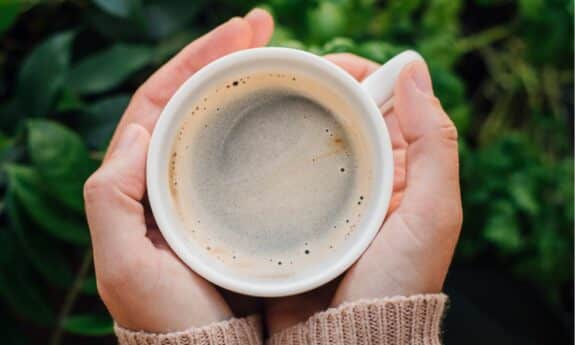Concerns about caffeine consumption during pregnancy have long been debated among expecting mothers. However, a recent study conducted in Denmark may bring some relief to those who enjoy a cup of coffee while pregnant.
Previous research suggested that high caffeine intake could increase the risk of premature birth and having a small baby. However, the British Medical Journal study found no significant differences between women who consumed moderate amounts of caffeinated and decaffeinated coffee.
In the UK, pregnant women are advised to limit their coffee intake to 300mg per day. This equates to about three cups of instant coffee, six cups of tea, or eight 40mg cans of cola or chocolate bars. According to the Food Standards Agency, having a bar of plain chocolate, three cups of tea, a can of cola, and a cup of instant coffee in a day would meet this limit.
The study monitored 1,207 healthy pregnant women who had a high caffeine intake of more than three cups of coffee a day. Half of the women were given regular coffee, while the other half were given decaffeinated coffee. The researchers evaluated the risks of premature birth and having a small baby in each group.
The results showed that there was no significant difference in the length of pregnancy or birth weight between the two groups. Women who consumed decaffeinated coffee had a caffeine intake that was 182g lower than those who drank caffeinated coffee. Among those who consumed caffeinated coffee, 4.2% of babies were born prematurely and 4.5% were small for their gestational age. In the group that consumed decaffeinated coffee, 5.2% of babies were born prematurely and 4.7% were underweight. However, the researchers noted that decreasing caffeine intake during the later stages of pregnancy had no overall effect on birth weight and length of pregnancy.
While this study provides some reassurance, it is important to note that any potential effects of caffeine consumption in the first half of pregnancy were not observed in this study. Therefore, it is always recommended to consult with a healthcare professional about caffeine consumption during pregnancy.
Here is an example of how much caffeine is in your favourite beverages:
| 8-ounce Beverage | milligrams |
| Coffee, Drip | 115-175 |
| Coffee, Brewed | 80-135 |
| Coffee, Espresso (2 ounces) | 100 |
| Coffee, Instant | 65-100 |
| Tea, iced | 47 |
| Tea, brewed, imported brands (avg.) | 60 |
| Tea, brewed, U.S. brands (avg.) | 40 |
| Tea, instant | 30 |
| Tea, green | 15 |
| Hot cocoa | 14 |
| Coffee, Decaf, brewed | 3-4 |
| Coffee, Decaf, instant | 2-3 |
| 12-ounce beverage | milligrams |
| Red Bull (8.2 oz) | 80.0 |
| Jolt | 71.2 |
| Pepsi One | 55.5 |
| Mountain Dew | 55.0 |
| Mountain Dew Code Red | 55.0 |
| Diet Mountain Dew | 55.0 |
| Kick Citrus | 54.0 |
| Mellow Yellow | 52.8 |
| Surge | 51.0 |
| Tab | 46.8 |







